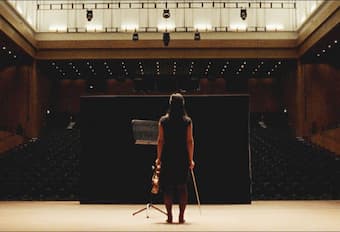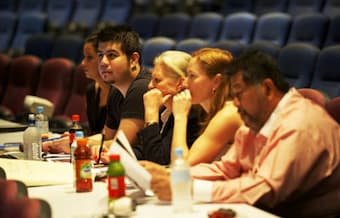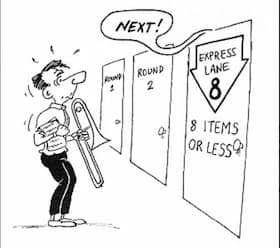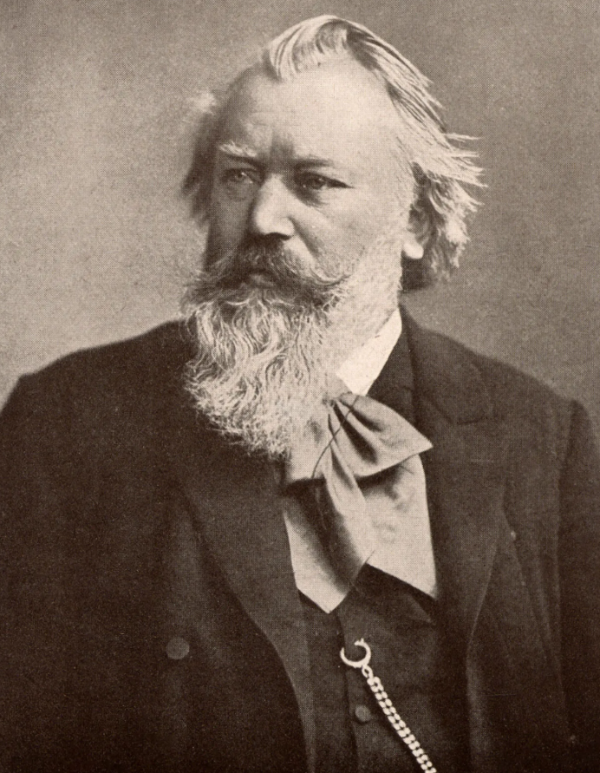
© imdb.com
Ah, auditions. One of my favourite performance experiences where nothing ever goes wrong and I feel totally calm and relaxed and always play exactly how I do in real life with no silly mistakes at all… If only, right? Apart from the obvious one (practice), here’s a little (definitely non-exhaustive) list of tips to get you through those weird and stressful days.
Don’t apply if you won’t commit
Personally, I’m not a fan of the ‘apply for as many auditions as you can and then pull out as and when’ approach. In my mind, if you commit to something then you should be prepared to see it through. Don’t think you’ll have enough time to prepare? Then don’t apply. Not sure if you’d really want that job anyway? Then don’t apply. There is, of course, an argument for gaining audition experience, but I think deep down if you’re not feeling it in your heart, it’s not worth it. You might not be totally committed, but there damn well will be someone else there who is. Give yourself the best chance and wait until you’re that person.
Embrace the difficult bits
Obviously there are always going to be parts of the music that we feel less comfortable playing than others, but remember to keep the perspective and assimilate them into the whole performance. Embrace them, dedicate more time to them, but don’t let them dominate the whole experience. I don’t know how many orchestral auditions I’ve ruined by spending the whole time worrying about that one tricky excerpt (and which, half the time, doesn’t end up getting asked anyway). At the end of the day, the difficult bits ain’t going anywhere, and chances are that if you’re struggling with something then a large majority of others will be too. Don’t let it sap your enjoyment of the other 97% of material solidly under your fingers.
Visualise yourself doing well

© OrchestraExcerpts
A technique used by an increasing number of musicians, and something that’s been around in sports for ages, is the practice of visualisation. For some, that involves mentally rehearsing their routine from the moment they arrive at the venue, down to taking their instrument out of the case; for others it will be more focused on the playing itself. At any rate, visualising something stressful under calm circumstances usually pays off when the stakes are high.
One thing in particular that helps me is to imagine that I’m actually sat on the panel watching myself audition. I try to imagine what I’d look for in a good candidate: someone calm, who has a strong control of their instrument and who seems happy to be there, rather than nervous or uncomfortable. If you’re on a panel, you also want so much for each person to do well, and that sense of well-wishing is something that really helps me to remember in the audition itself.
Just like any skill, visualisation takes practice. Repetition is key, and don’t be disheartened if you get distracted at the beginning, or don’t get it straight away. Keep trying, and remember: even a little bit of visualisation practice is probably better than none.
One important thing to note here is to not become reliant on the visualisation – it’s just another tool to aid in your preparation. If you get too hooked on the tiny details and unwittingly internalise too much, then it can throw you off in the audition room if the panel is sat further away than you were expecting, or if the lighting is different to what you imagined. The goal is not to predict exactly how it’s going to turn out; it’s to create a general sense of familiarity and confidence that will ground you in the audition room.
Practise in your audition clothes

© OrchestraExcerpts
A slightly less abstract tactic that I adopt in my audition preparation is to wear the shoes I’m planning on wearing on the day – or even better, the whole outfit. Something I used to never really notice (until it was too late) was how different it felt to stand in my posh shoes in the audition room to just my socks at home. Suddenly I would feel like I wasn’t grounded, that the surface beneath my feet felt unfamiliar and uncomfortable – and it has the power to really throw you off. Just like with visualising your performance, doing a few run-throughs wearing your shoes (or even the entire outfit you plan to wear on the day) will help to create a sense of familiarity and remove another potential source of unexpected anxiety. It seems like a small point, but it’s really like giving your body chance to physically ‘visualise’ how it will feel, and to give you time to adapt in a calm environment.
Finally, there are two main things to remember: firstly, auditions aren’t pleasant. They just aren’t. That doesn’t mean, however, that we have to be afraid of them. Secondly: everyone’s methods of preparing for auditions are different. Find what works for you, practise it, hone it, and try your best to enjoy it. It will definitely show.
For more of the best in classical music, sign up to our E-Newsletter



